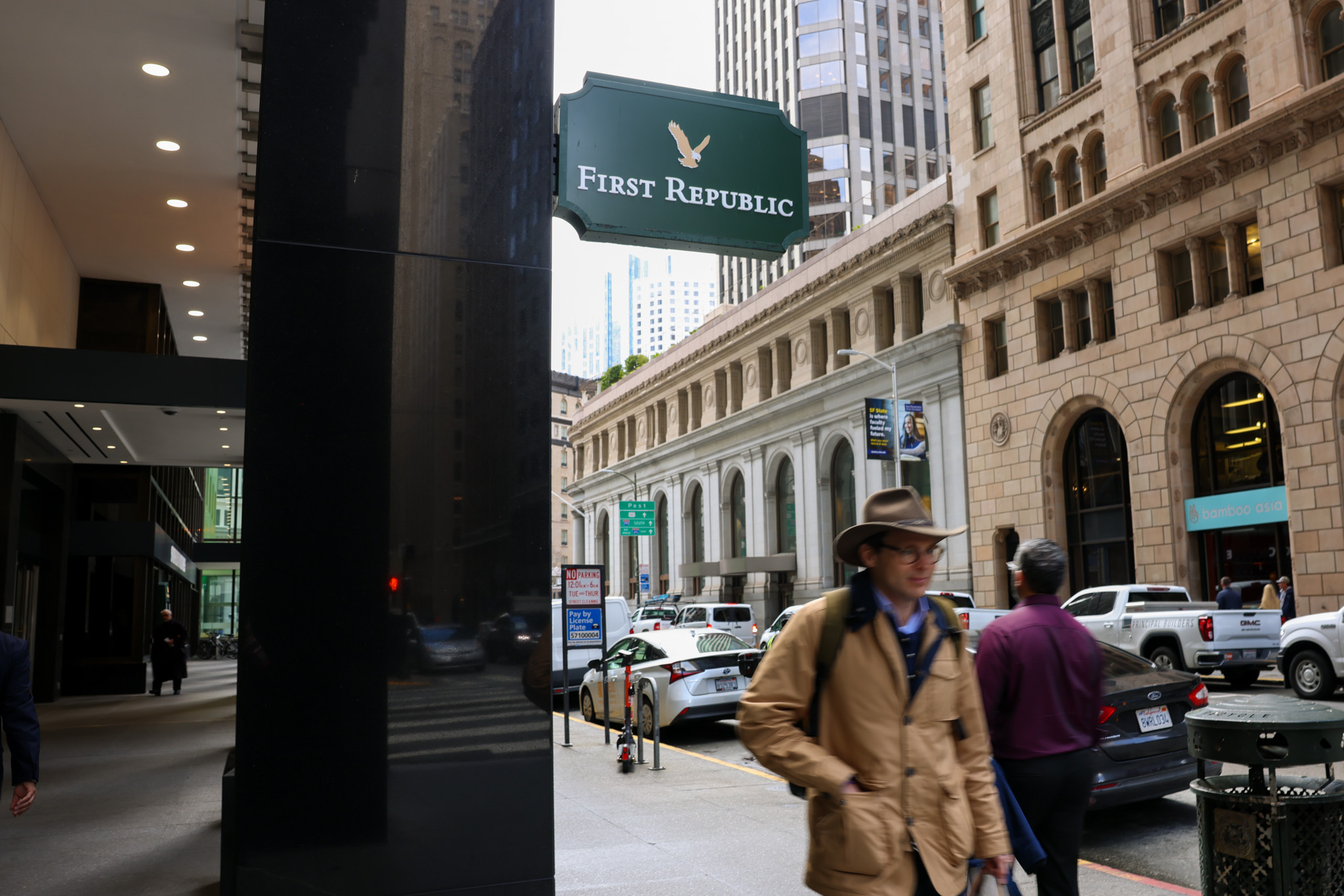First Republic’s no-good, very-bad year has gotten even worse in the wake of an earnings call that revealed deposit losses that were higher than Wall Street had expected.
The company’s share price dropped to a new low of $4.38 on Wednesday. While its stock had marginally recovered by mid-day, the situation still looks bleak: First Republic’s shares are down more than 90% from the beginning of the year, and it’s the lowest-performing member of the S&P 500 index this year.
In a bid to bring assets in line with liabilities as it explores “strategic alternatives,” company executives are reportedly planning on selling off up to $100 billion in assets, including long-dated mortgages and securities.
Bloomberg reported that potential buyers have been offered warrants or preferred equity as part of the sale, essentially a sweetener to purchase the assets above current market value. That strategy could bring in new capital for the bank without it having to realize losses that could weigh down its books.
First Republic also announced plans to ditch real estate holdings, cut executive pay and lay off up to 25% of its current staff—equivalent to some 1,800 workers—by June 30. According to the San Francisco Business Times, First Republic leases around 750,000 square feet of office space in and around Downtown, which is already saddled with growing vacancies since the pandemic.
But the bank has more immediate concerns; its options are rapidly narrowing after a run on deposits last month eliminated more than $100 billion from its books. According to Reuters, First Republic leadership is also considering spinning out a a “bad bank”—a mechanism for isolating toxic assets— that could leave the core bank in a better financial position.
First Republic was buoyed in March when a number of large financial institutions provided $30 billion in deposits, and executives are reportedly going back to these companies to buy its distressed assets.
The pitch is that while those banks would take an immediate financial hit from these purchases, the failure of First Republic would mean an even greater risk to the banking sector.
First Republic was hoping for help from federal regulators, who could bring private equity firms and other capital sources to the table, but CNBC reported that government officials are currently not willing to intervene.
“First Republic needs to pull off the mother of all pivots to survive,” Tim Coffey, an analyst at wealth management company Janney Montgomery Scott, wrote in a report Tuesday.
